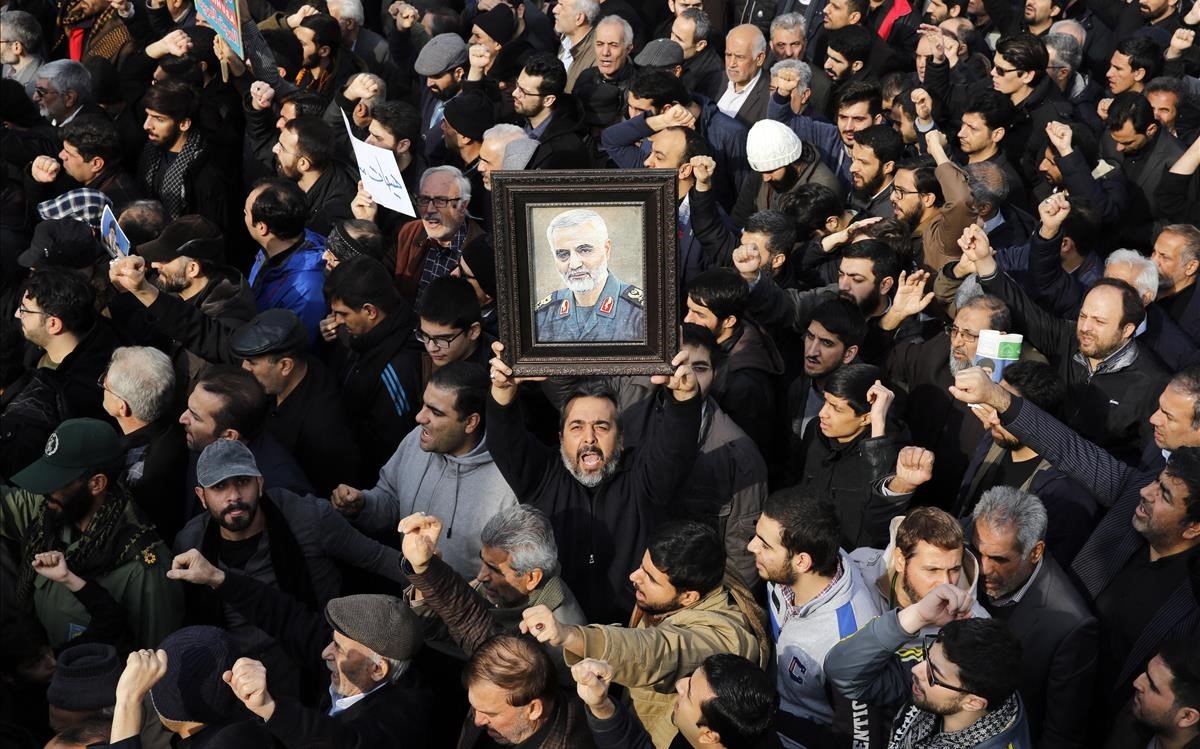
The killing of Qassem Soleimani by the U.S. deepens the conflict with Iran, triggering the danger of a domino effect over the area.
On the Iran-Iraq stage, the rationale of conflict escalation has taken over with unusual speed since President Donald Trump decided to carry out airstrikes against Shiite militia positions in Syria and Iraq last Monday. That is why no one at the Pentagon has doubts that, sooner rather than later, the Iranian regime will respond to the assassination of Gen. Qassem Soleimani and several of his associates, including Abu Mahdi al-Muhandis, leader of Hezbollah in Iraq. That is also why there is little doubt that the United States’ decision to relocate its conflict with Iran to Iraqi soil will lead to radicalization in the streets against Adel Abdul Mahdi’s caretaker government, caught in the crossfire between its two allies.
Trump’s claim on Twitter that “Iran never won a war, but never lost a negotiation!” seems more like boasting than a statement aiming to achieve a negotiated outcome. It is unlikely that the White House truly believes that, after killing one of Iran’s national heroes and an associate of Ayatollah Ali Khamenei, the regime will agree to sit at the negotiating table. There is nothing to suggest that the conflict will cool off. The jump in Brent crude prices is a sure sign that projections are quite different at the international level. Since there is the risk of a domino effect, those Arab countries involved in the United States and Israel’s system of partnerships cannot be regarded as agents operating on the sidelines of the conflict or unaffected by it, however much Israeli Prime Minister Benjamin Netanyahu invoked the right of the United States to defend its citizens. On the contrary, Trump’s decision to set fire to the Iraqi lot with a drone strike debases the political climate from the eastern Mediterranean to the Persian Gulf. The risks involved with using expeditious methods give reason to fear the worst in an area accustomed to stringing together never-ending crises.

Leave a Reply
You must be logged in to post a comment.